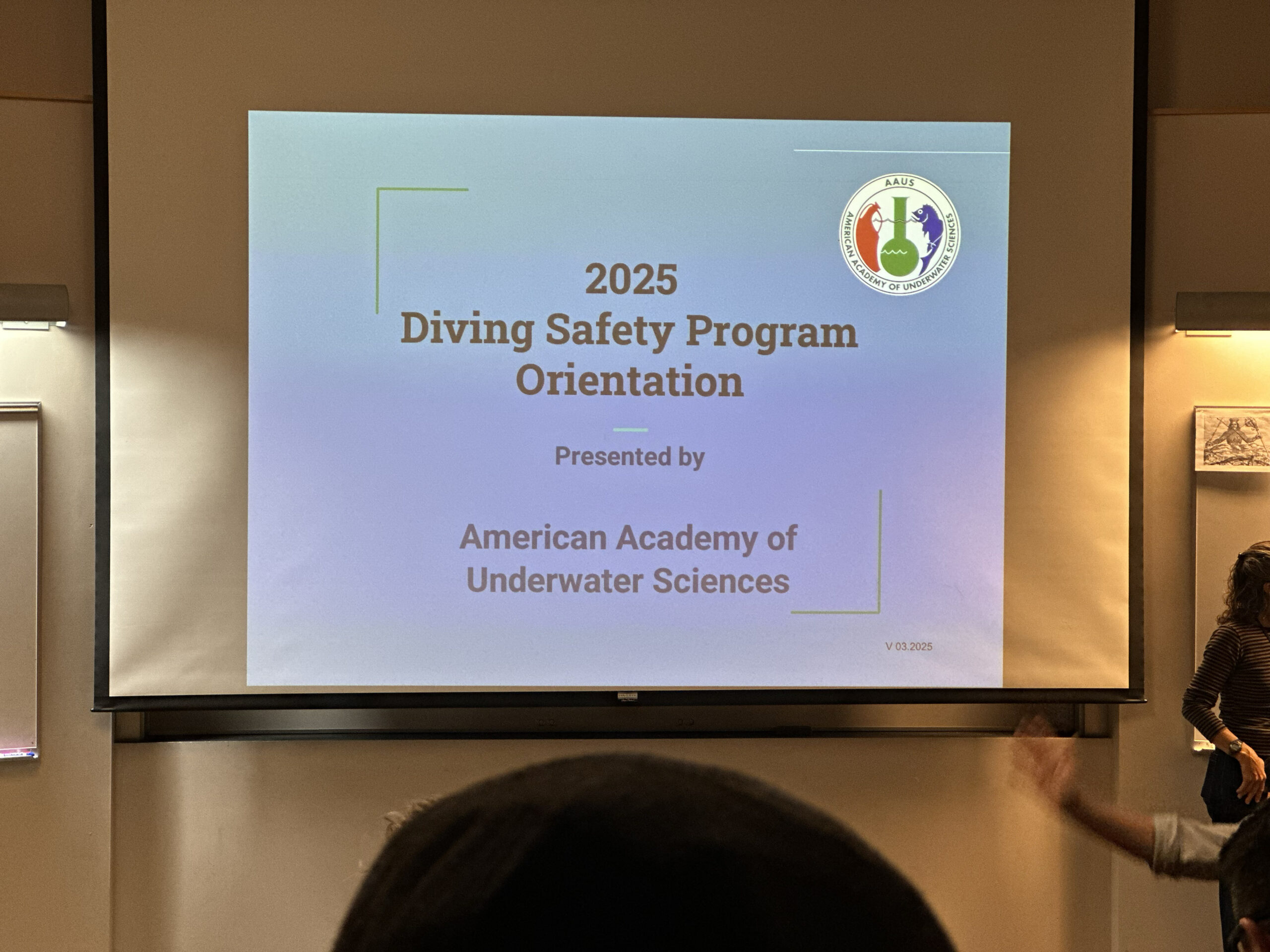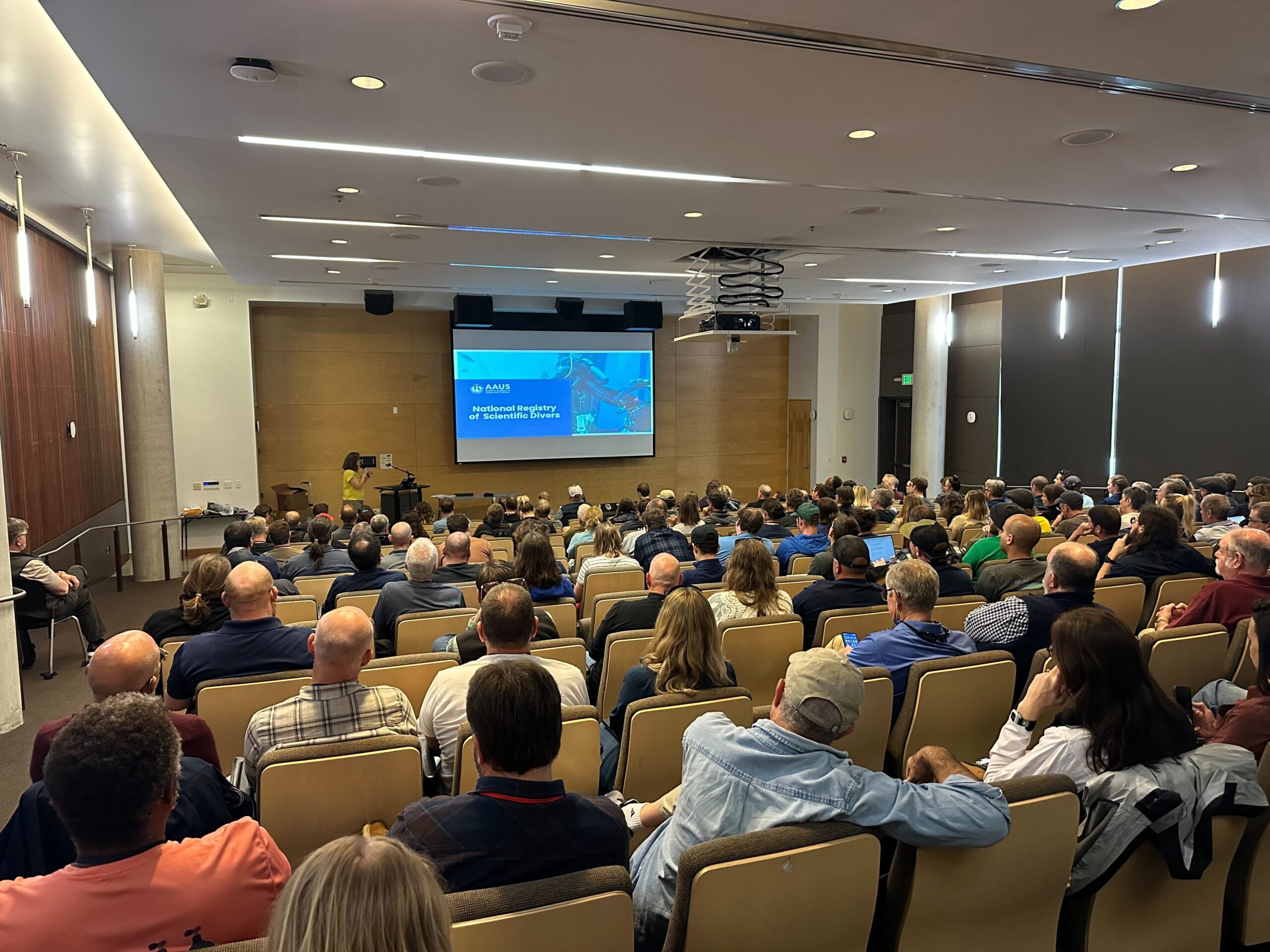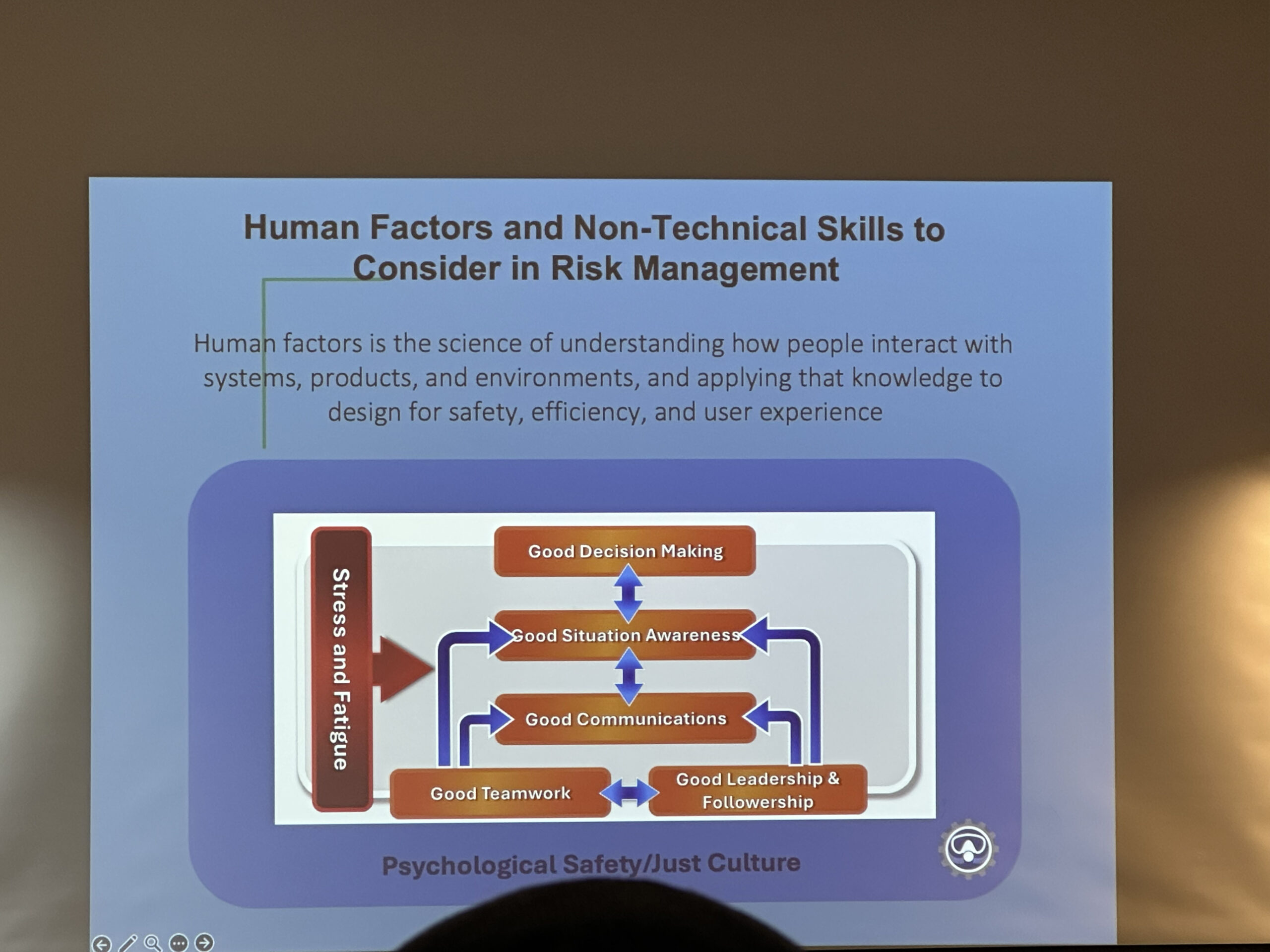AAUS Membership Will Create New Opportunities to Protect Maui’s Reefs
Protecting Maui’s reefs requires work done by a special class of divers who are focused on collecting scientific data. Scientific divers are often trained in marine biology, archaeology or another field of science and are diving with a mission to gather and share scientific knowledge. In the US, the American Academy of Underwater Sciences (AAUS) is the organization that sets scientific diving and safety standards.
Our Science Director, John Starmer recently attended the 2025 AAUS Diving Symposium in Seattle, Washington to learn more about operating a diving safety program that meets AAUS standards as the first step in the Maui Nui Marine Resource Council’s (MNMRC) journey to become an AAUS member. “Becoming an AAUS organizational member or “OM” ensures other OMs that our diving safety program is AAUS-approved and makes it easier for our team to work with other member organizations like the University of Hawaiʻi, NOAA, or the Division of Aquatic Resources (DAR),” said Starmer. “This means the Maui Nui Marine Resource Council can work with more partners and have a bigger impact on our local reefs.”

The Maui Nui Marine Resource Council is in the process of becoming an AAUS organizational member, which will improve diver safety and make it easier for its team to collaborate with other divers and organizations. (Photo Credit: John Starmer)

The American Academy of Underwater Sciences (AAUS) held its 2025 Symposium in Seattle, Washington. The 6-day gathering included presentations, scientific papers, and training opportunities in the field.
Approval from other organizations to work with their divers is referred to as “reciprocity.” In Hawaiʻi where our reefs are vulnerable, having reciprocity agreements in place means MNMRC is ready and able to take action in the event of a major disaster or reef-damaging event. “Imagine the reef got hit by a big ship grounding or hurricane. As an AAUS member we can partner (dive with) other organizations in the emergency response to help protect the reef from further damage and take action to help the reef heal afterwards.”
The ability to easily provide reciprocity also opens up collaboration opportunities for visiting scientists from universities, aquariums, or government agencies, many of which are AAUS OMs. It is common for scientists to work in Maui on single or multi-year projects. By having an AAUS-certified program, the Maui Nui Marine Resource Council can offer a more straightforward way for them to connect and work with us.

The American Academy of Underwater Sciences (AAUS) sets the highest level of safety standards for scientific divers, giving the profession a universal set of protocols and procedures to follow when out in the field. (Photo Credit: John Starmer)
While reciprocity provides motivation to join the Academy, the American Academy of Underwater Sciences (AAUS) sets the safety standards for scientific diving to “ensure every diver comes home safely.” “Although all diving is safer than it was just 50 years ago, there are dangers involved in any diving activity. Safety is the number one benefit to our diving program because we have access to decades of knowledge and experience from Academy members and hundreds of thousands of dives,” said Starmer. “The AAUS standards continue to be updated as new technologies are used for scientific diving. Becoming an OM allows us to apply up-to-date best practices, ensure we have a shared set of familiar processes when collaborating with other organizations, and, most importantly, make sure our divers keep themselves safe while supporting our coral reef conservation goals.”



No Comments
Sorry, the comment form is closed at this time.